BAGHDAD - Soldiers preparing for a rotation to Iraq train to combat snipers and improvised explosive devices. Soldiers learn convoy operations, weapons familiarization and first aid to be ready for whatever might come their way.
They have trained for the big things, but sometimes it's the little things that can be just as important-and just as hazardous.
Soldiers of the 1848th Medical Detachment's preventative medicine section spend their time focusing on the details to provide proactive health services at Victory Base Complex.
"Our goal here at [Preventative Medicine] is to try to ensure that as few people as possible get sick," said Capt. Michael Klaus, executive officer, 1848th Med. Det.
Three key points of preventative health for Soldiers in Iraq are animal awareness, hygiene and proper diet, according to Staff Sgt. Delbert Draper, noncommissioned officer in charge, 1848th Med. Det.
Don't feed the animals
There are several creatures living in and around the bases and outposts that can be potentially hazardous to Soldiers, according to Delbert, who has more than twenty years of experience in his field. However, that doesn't mean that every animal encountered is a threat.
"We need to understand the difference between the rodents and bugs we see and what's a medical threat," said Draper, from Anchorage, Alaska. "It is the ones that come inside that are the threat, because the diseases they can get, we can get."
Insects can pose a threat to Soldiers mainly by spreading diseases such as malaria and leishmaniasis, a potentially disfiguring skin disease. Mosquitoes, sand flies and other flies are the big concern, according to Draper.
"Contractors spray to kill them, but even with control measures, we can't kill every mosquito and sand fly," said Klaus. He added that the best way to practice prevention is proper wear of the uniform with diethyl-meta-toluamide (DEET) insect repellent as well as upkeep in buildings and housing areas.
"Keep your doors and screens closed; if it's broke, get it fixed," Draper stressed.
The presence of potentially harmful pests doesn't mean that every bug in the air is harmful, according to Klaus, who calls Yakima, Wash., home.
"The clouds of midges that swarm around the lakes and canals ... those are not mosquitoes - they aren't going to hurt you," he said, referring to the small flying insects many people mistake for mosquitoes when they walk through a swarm.
Rodents are another annoyance as well as a potential vector for disease, including bubonic plague, according to Klaus. They come into housing seeking shelter from the heat and an easy meal. Tell-tale signs of a rodent infestation include the presence of droppings and evidence of gnawing.
"The best way to keep rodents out of your living quarters is to keep it clean," said Draper. "If you do find evidence of rodents in your living quarters, call [the billeting contractors] and they will take care of it."
The presence of rodents will attract predators that feed on them, namely snakes. There are a few species of venomous snakes in the general area that might follow in the wake of a rodent infestation, according to Draper, who mentioned a recent incident at al-Asad Air Base.
"Someone found a cobra in a toilet," he said. "Thankfully it was seen before anyone sat on it."
Dogs are potentially dangerous inhabitants also. They can carry rabies, and the parasites living on them such as fleas and ticks can carry an assortment of diseases. General Order Number One prohibits keeping animals as pets or mascots.
"A good rule of thumb: if it doesn't come when you call it, don't touch it," Draper urged. "It's not a good dog; it's not a family pet."
Keep it clean
Cleanliness, another aspect of preventative medicine, is not always easy in the combat zone but should not be ignored. The first line of defense in general disease prevention is hygiene, Draper said.
"Some Soldiers get here and adopt a conception that the regular rules are off," he said. "They think that because they are in 'the field', that hygiene can be put on the back burner."
A big part of basic cleanliness is hand washing before eating and after using the latrine. Bacteria can be transmitted from hands to food and introduced into the body when this food is eaten, Draper explained. Hand sanitizer helps, but it is no excuse to skip the hand washing station at the dining facility, he added.
The one aspect of personal hygiene neglected the most is dental, according to Draper.
"The mouth is the first line of defense from diseases," he explained. "When you neglect to brush your teeth, bacteria populations multiply in your mouth, making it harder for the natural defenses to keep up."
In addition to the body, clothing also needs to be kept clean to provide proper hygiene.
"Skin rashes and diseases can come from wearing dirty clothes," Draper said with a hint of distaste. "Plus it stinks. Insects are attracted to those smells; DEET might not help at that point."
Drink water and eat right
With the temperature starting to rise, heat casualties are going to become a major concern. Hydration is a must when the mercury climbs to the top of the thermometer, but diet cannot be disregarded, Draper explained.
"How you eat is extremely important," he said. "The two minerals we need the most in hot weather are potassium to help our body store water and sodium chloride [salt] to help release water in the form of sweat. There isn't a lot of potassium in a hamburger or a steak, so you might have to eat something you might not want, such as vegetables." He went further to explain that an intensified workout regime doesn't cancel out an increased intake in sugary foods, which can lead to health problems in the future, including diabetes.
"There's what you can do and what the Army can do," said Draper. Many ailments and potential hazards facing Soldiers today can be prevented with a few precautions and safeguards. He added that the responsibility for the majority of preventative practices falls on the individual.
Perhaps getting sick is a little less scary than getting a combat injury but it can be just as serious.
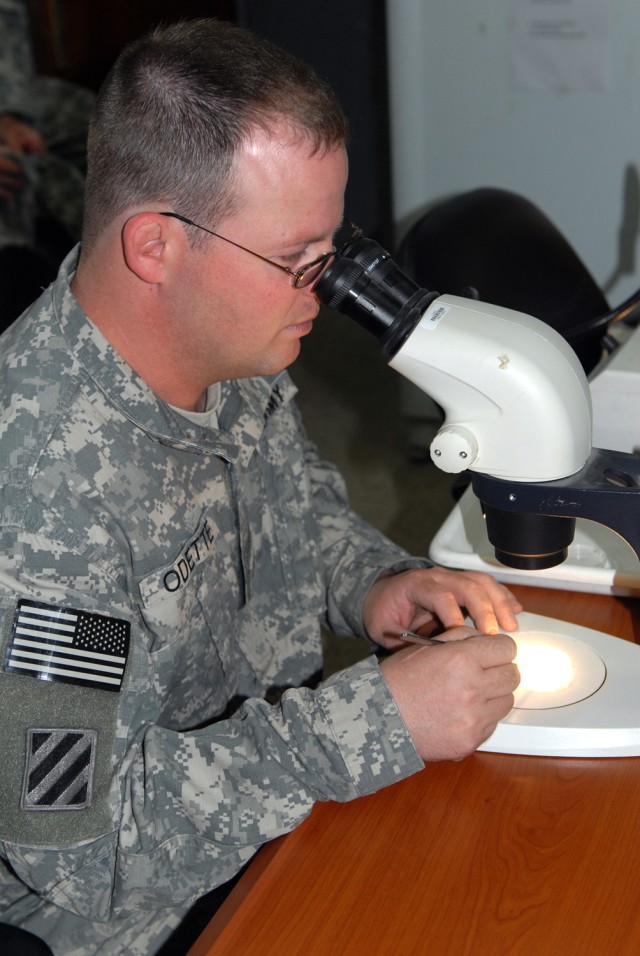
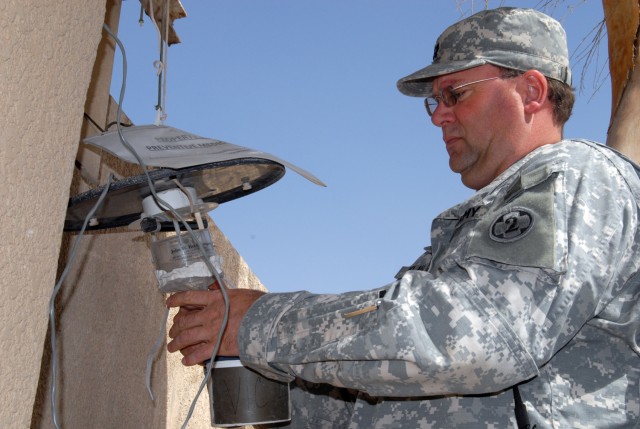
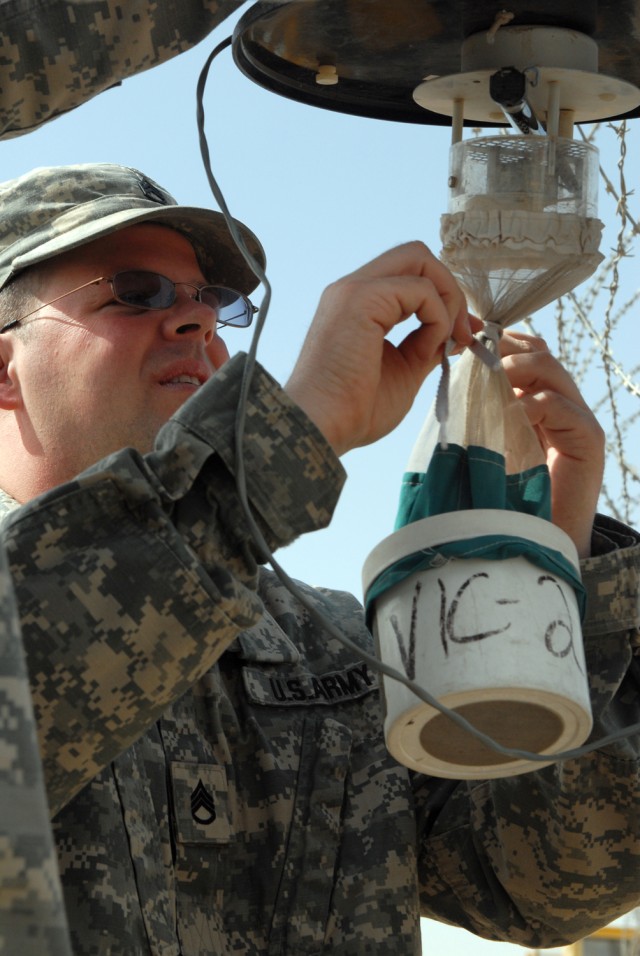
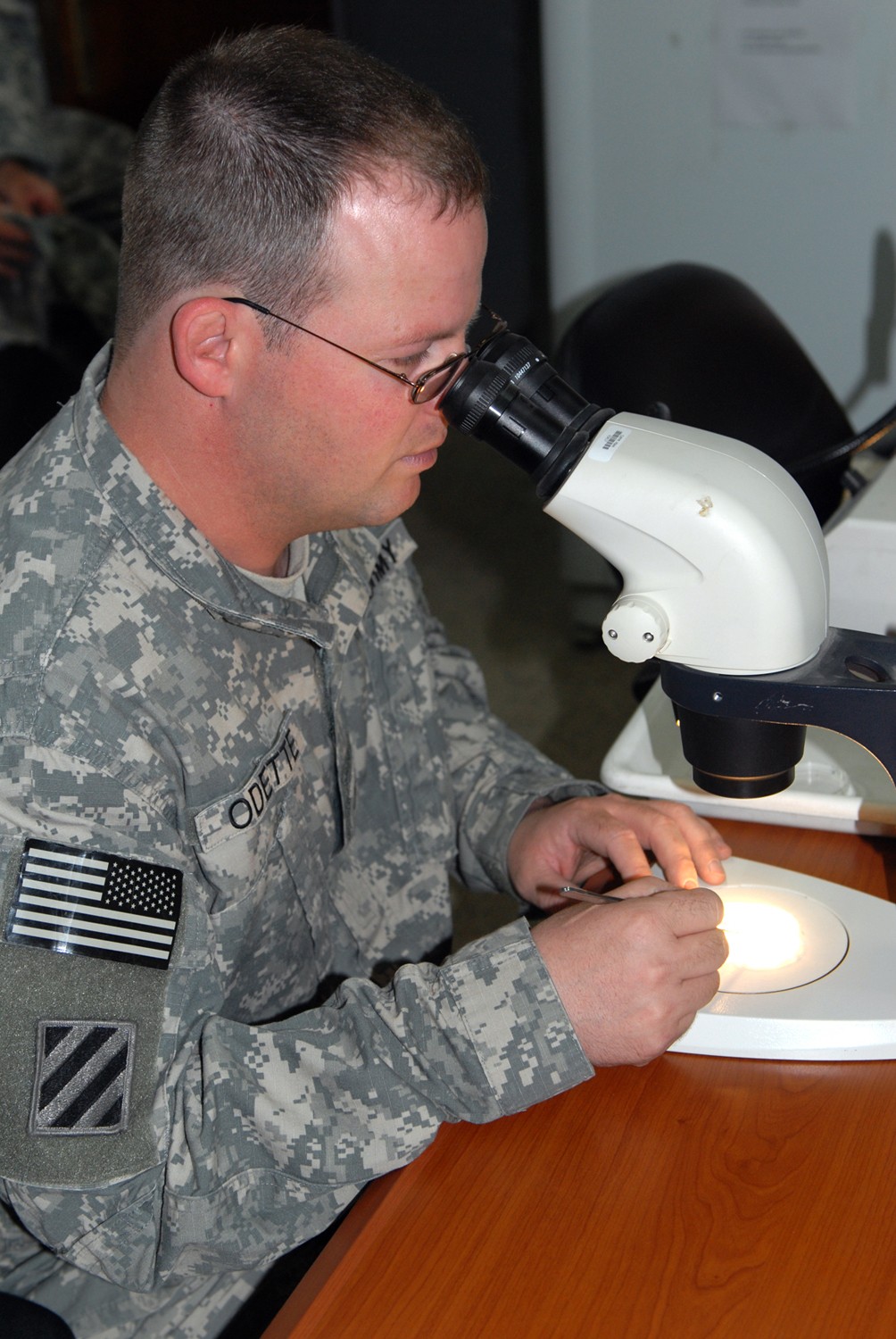
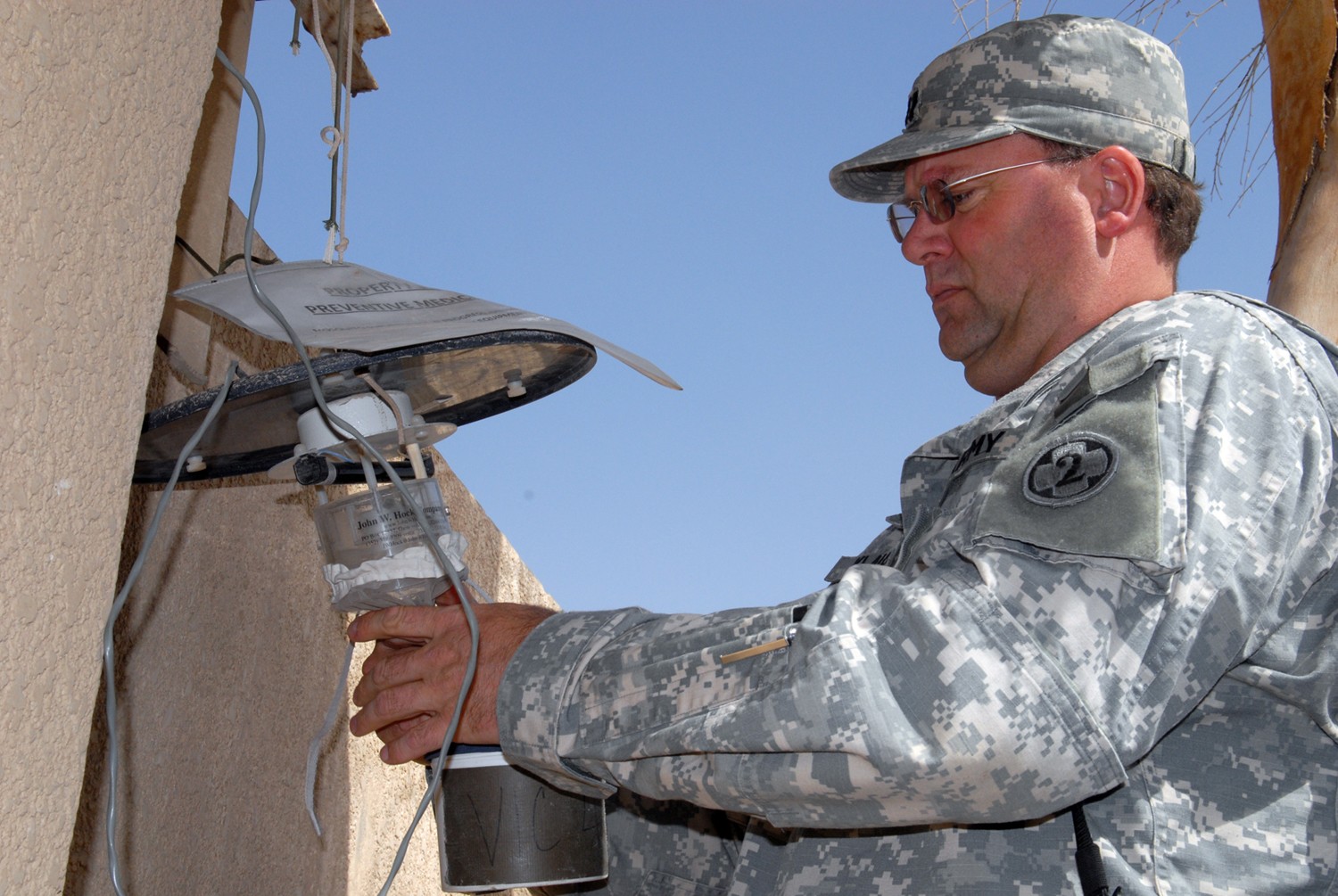
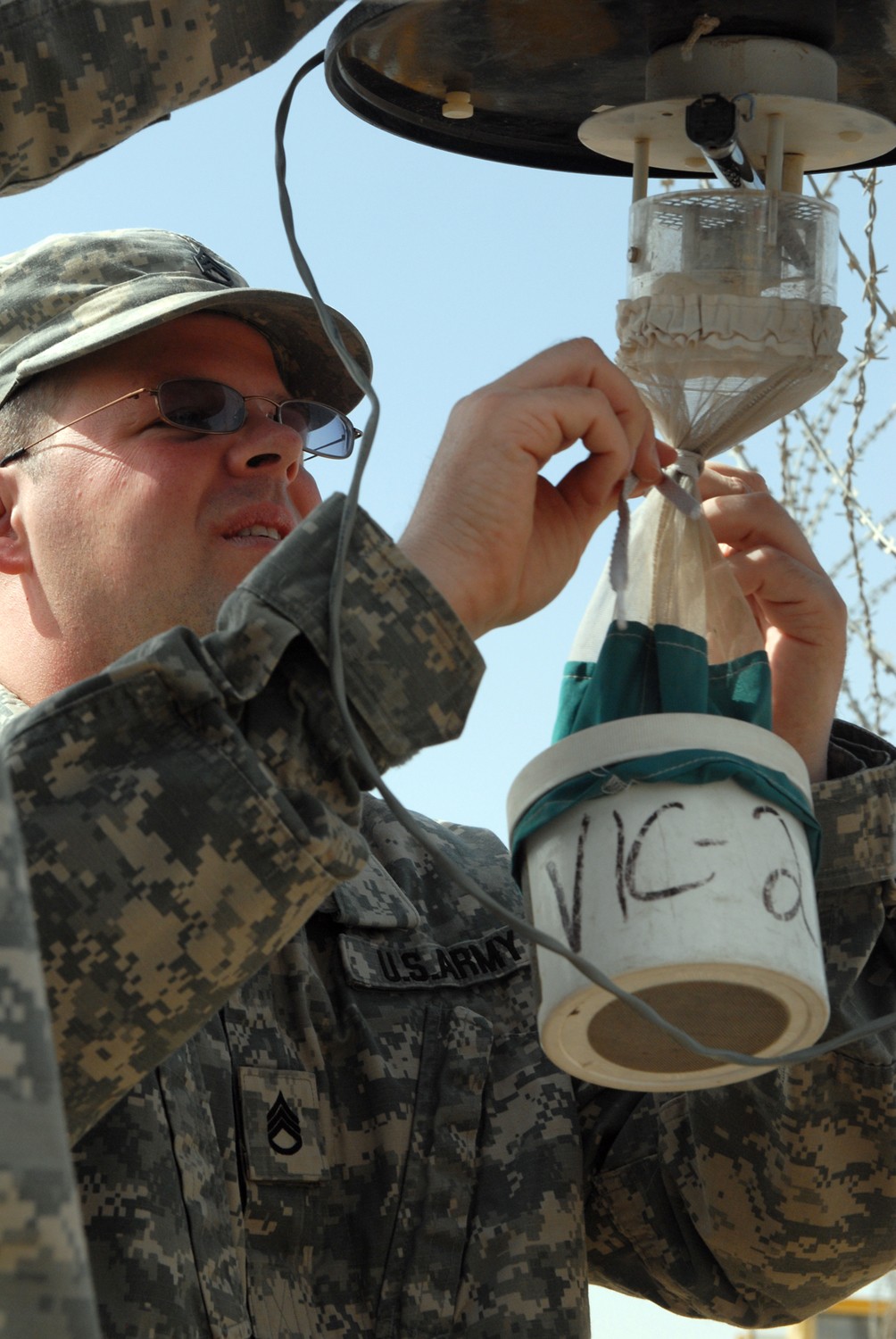
Social Sharing